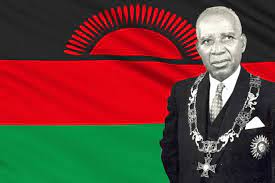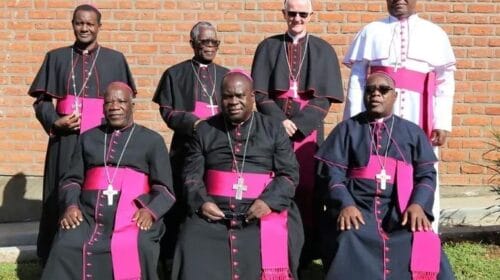The Self-defeating Idiocy Of Nigerian Secessionist Movements By Dele Farotimi
I must confess to having been once possessed of the intellectual indolence required to embrace the asinine belief, that Nigeria’s problems, and more particularly, my interests as a “Yoruba” man, would be resolved by a breakup of the “Nigerian federation”. I was ideologically committed to the creation of a Yoruba nation, and at a minimum, I was happy to accept a “restructured” Nigerian state.
I have come to the knowledge of just how foolish I was, and I have little patience with those that have continued to hold to this distractive and idiotic position, because they are the ones that have been blinded to the truth. The Nigerian state can never break up peacefully, and whilst they are wasting their energies and lives seeking the unachievable, what is easily achievable, and much better, is being lost.
If Nigeria were to be a nation founded on the equality of citizenships. If laws shall be the foundation upon which the state is found. If all are truly equal before the law, and the laws be not, the instrument of injustices and institutional wickedness, the secessionist noises would have never been heard. If a man’s tribal origin has nothing to do with his rights as a citizen, or his weight, before the law, if his religion is his business, and solely his, if Nigeria is what it was purposed to be, nobody would want to be part of a smaller nation. If some people do not profit by claiming to speak on behalf of the divisions that they have created and fostered, the secessionist voices would have been silent.
The inequities and injustices of the Nigerian state, are the breeding ground for the demands for tribal homelands, but I assure you, that the Nigerian state is too strong to be broken into the tidy enclaves sought by the secessionists. The Nigerian state knows this, and works always with this knowledge. I will even go as far as to say that the Nigerian intelligence agencies have even encouraged these tendencies, as a part of the efforts to distract critical attention away from the failures of the state, and to both delegitimize and criminalize genuine dissenting voices, that have embraced secession in their frustration with the Nigerian state.
I have treated the issues of our multiple levels of citizenship extensively in ‘Do Not Die In Their War’, and I am dealing much more extensively with the intellectual error undergirding secessionist movements in Nigeria in my ongoing work, but I have recently become increasingly convinced that we are sleeping through a revolution that has commenced without announcing its arrival, and the common lullaby being sang for the somnambulists, which are in truth, dirges, are secessionist songs. I ask that you open your minds.
The sum of the Nigerian minorities, is larger than whichever believes itself the biggest of the three dominant ethnic groups, that are the ones, that have ever demanded to secede. The minorities are more than the biggest of the ethnic giants. Let me help you to understand. The Nigerian state has never been predicated on the equality of citizenship. It has always been characterized by the rights acquired by the group. The regionalization of Nigeria by the British was an exercise in administrative convenience, and the management of scarce resources and systemic efficiency, were the cardinal reasons behind the adoption.
What did not feature in colonial considerations, were the several minority ethnic groups, that were arbitrarily Balkanized, and rendered the subjects of the mostly overbearing ethnic majorities in the regions created. The Bill of Rights that was contained in the Nigerian Independence constitution, was a direct result of the agitations of the minorities, and a recommendation of the Willinks Commission that was raised to address the concerns of the Nigerian minorities. The minorities have always found common cause in refusing to be part of any secessionist undertaking, and this is informed by a commonality of their fears of domination, subjugation, and repression by the majority tribes.
The fundamental human rights sections of the Nigerian constitution, owes its origins to the fears of the minorities for the inequities of the Nigerian state, at birth. Why would they support any secessionist agitation by any of the three behemoths? What has changed?
The Yorubas have the most impressive secessionist arguments. I should know, I had argued a few of them in my time. They are the most homogeneous of the old regions, and the few ethnic minorities to the fringes of their territories have been mostly assimilated, and aside from the Ondo riverine boundaries with the Ijaws, and the troublesome issues of Ilorin and the Okun Yorubas of Kogi, they have few conflicts to resolve. But where would the rest of Nigeria be, if they allowed the secession of the part of Nigeria, that has by the exertions of all, become the economic engine room, of the Nigerian state?
The Igbo’s have been the loudest of all the secessionist voices. They have fought the Nigerian civil war, paid a heavy price for the war that they had no choice but to fight, and are still paying till date for their daring. But the Igbo secessionists would forget the truth of their own history. They are the ones that have proven the thesis that I seek to establish, and to watch the refusal to draw the strategic lessons for which entire generations paid a hefty price, is a disservice to their sacrifices.
Nigeria has an Igbo problem. At the root of the many seemingly intractable problems assailing the Nigerian state, is the refusal to allow the equality of citizenship. The Igbo man has never asked to be treated different from anyone. I have never heard Ndigbo asked for anything that he is unhappy to see other Nigerians enjoy. I have never heard anyone say that what the Igbo man is demanding, injures their own rights, and I have not heard of any, that would reject the Igbo charter of demands from the Nigerian state, if the same were offered to them. If Nigeria would resolve its Igbo problem, it would have answered its crises of nationhood.
Twenty-one years after the military junta had left office, years in which the states have been exclusively ruled by sons of the soils. The governors, legislators, local government chairpersons, and all members of the state governments, are not foreigners posted to loot the state, how well have the states fared? Who is responsible for the bulk of the rots that the secessionists point at, as validation for their agitations? Granted that the Nigerian state has facilitated the evil by the evil governance systems, but how do they expect to cure these institutional maladies in their utopian republics?
In the Oodua Republic being sought by the Yoruba irredentists, where would Tinubu be? Would the rulers be different from the current lot that afflicts the people? What would be different in that republic? Would the Ibadan allow the Oke-Ogun people to rule Oyo State? Would Okeho allow Saki to take the slot? Ofiki people nko? Would the Yewa-Awori in Ogun State become eligible for the gubernatorial office? Ha! Lest I forget, would the Ikorodu people then get a shot at the governorship of Lagos State? And this is amongst the homogeneous Yoruba.
Igbo Kwenu! Would the Anambra man be the one that rules first? What about the Ebonyi man? Ehn ehn, where are the Ijaws in this Biafran Republic? The Ikwere and other lost tribes of the Igbo people nko? Where would the Orji predators of Abia be? Would you be hosting annual New Yam festivals to beat the Ekweremadus of the Biafran utopia? Those pesky Calabar people nko?
I will not even bother to address the many issues that would render it impossible for what you would call the north to secede. I will merely ask that you picked up a map of the Nigerian state, and seek to divide its northern part according to the disparate ethnic groups, that have endured centuries of political and religious oppression, in the hands of the Fulani and Kanuri hegemonies.
It is possible to galvanize Nigerians behind a quest for a better Nigeria, one that is just and fair to all, than to chase the illusion offered by secessionism. Every Nigerian that is not in government, or a friend of government, is a victim of the injustices, that permeates the Nigerian experience. The Nigerian ruling class do not bicker over their tribal differences, and even the ones that have demanded restructuring, and encouraged secessionist voices in the past, becomes great nationalists, once they are given room at the feeding trough. We play into their hands, when we accept the divisions that they have sown, to keep the people divided, and unable to see the commonalities of their afflictions.
I cannot resolve the argument in this article, but I am striving to ensure that the argument is comprehensively and extensively dealt with in my upcoming book. My intention is to sow a seed of doubt in the mind of the secessionists, and perhaps force the more intelligent ones amongst their ranks, into some introspection. If the efforts being exerted on secessions, are focused on the identification of common interests and purposes, how much better, would Nigeria be?
We shall continue this argument in due course.





